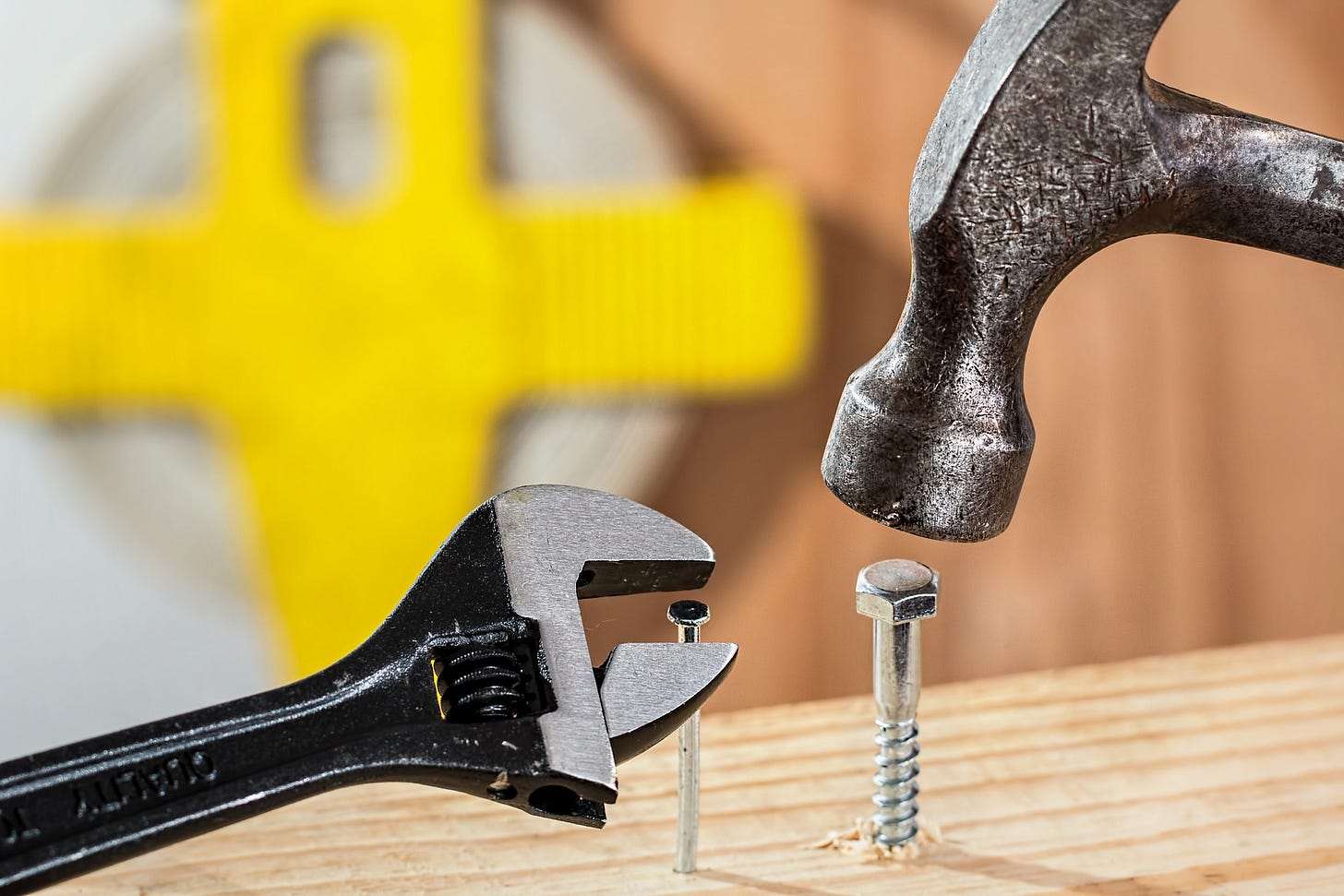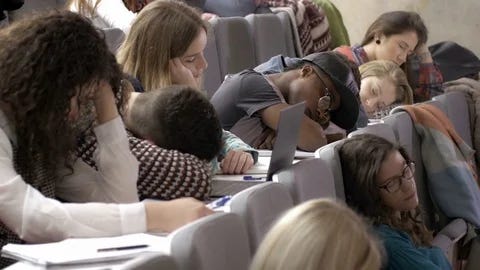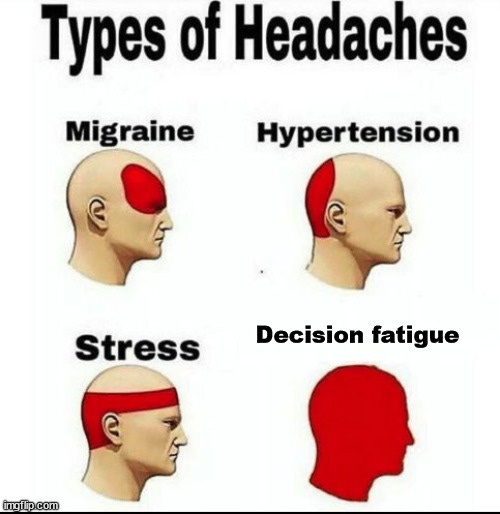I think I recently made first contact with an alien species.
The other week I bought a rug pad from Craigslist to put underneath my existing rug, in order to provide some extra cushion and traction. It was a sweet deal. The problem, though, was that the rug pad had some kind of mold or bacteria growing in it, and I didn’t notice it at first. But it soon got worse. Much worse. And started to smell, badly.
The bacteria ended up not only making the rug pad unusable, but it also then infected the rug above it, and also my wooden floorboards beneath it. Even weeks after removing the offending rug pad, and cleaning both the rug and the floorboards multiple times, I would still catch a whiff that I couldn’t tell whether it was a hallucination or the recolonization of my bedroom after a feigned retreat and temporary hibernation by some malevolent, alien superbacteria. And it had to be extraterrestrial; there's nothing this vile that evolved organically on earth.
In the end, getting the rug pad was a horrible decision, and took me a distressingly amount of time and effort to rectify the situation and get back to normal. I tell the story to illustrate how sometimes even with the best intentions, a really good idea can backfire and turn out to be way more of a problem than the one it was intended to solve. I simply wanted some more plushness on my plantars, but what I got was putrefaction and paranoia.
Optionality
One of the best nuggets of wisdom I’ve ever discovered is the concept of Optionality, as explained by Nassim Taleb. But unfortunately, this concept is easily misunderstood, and when applied incorrectly it can actually be extremely counterproductive. And I think that whether people realize it consciously or not, this idea is embedded into our consumerist society, and I honestly think it is one of the leading causes of woe that is daily felt by most of us. But we make the problem worse by actively pursuing it.
Like the rug pad, it began simply enough, as a nice little addition to make things a little more convenient. A little more exciting. A little more pleasurable. And it was for a while. But it quickly infected the whole system and it now needs to be properly sanitized in order for us to function normally again. Moreover, we can learn from our mistakes and reintroduce a clean rug pad (read: properly applied Optionality), and end up getting what we really wanted without all the singed noise hairs and schizophrenic fears and general frustration.
As a quick reminder, the concept of Optionality is fundamentally this: having more choices is better. And the corollary is that we should pursue whatever choice gives us more choices. It gets a little more complicated than this, but I'll get into more detail later. This understanding is as far as most people get.
And this idea, even at this oversimplified level, is pretty powerful and intuitive: We know that “if all you have is a hammer, then everything looks like a nail.” And so having more tools in our toolbox lets us approach many different problems in the most optimal way.
For example, I recently finished a course to become an EMT. I had the option of taking a 12 credit course through a community college, which would require me to commute about 30 minutes every day and sit in a classroom listening to lectures every weekday for 4 months. The state of Colorado pays for these kinds of programs, so it would essentially have been free for me.
Alternatively, I had the option of taking an online self-paced course, which cost me $50/month and then $1,000 at the end for one week of intensive hands-on training. More expensive, sure, but I did it in 6 weeks, and was way more engaged than having to listen to an instructor ramble over the same material for the 1,000th time (q.v. Pam Jensen from The Pale King). And I can start working about 2.5 months earlier, which in the end saves me a lot more money.
This is nice. I have two options to solve the same problem: how to get certified. And this is one of the fundamental benefits of free-market capitalism. Give people the freedom to choose from different solutions to their problems, and everyone is happy. Enterprising people will rush to start new businesses that can provide those new solutions. Some solutions will be more feasible than others, depending on the customer and their constraints. In the EMT example, some people may not have enough time to sacrifice four months of full-time education. But others may not have enough money to pay for an accelerated course.
And there's a second obvious benefit to having more options: preferences. I know that not everyone likes the type of instruction provided through online courses. Some would much prefer to listen to a real life human being stand there in three dimensions, make eye contact with you, call your name, talk through the concepts, gesticulate, demonstrate, make jokes, mistakes, etc.
So even if two methods are equally viable, from a problem-solving perspective, some people might just prefer one to the other, simply due to taste. What works for Papa Bear might not work for Mama Bear, and definitely won’t work for Baby Bear. We talked about Goldilocks last week, and how too much of a good thing can be a bad thing (I’ll link to that essay at the end of this one). Well now we're going to look at an experimental example of that premise, because it can sometimes be hard to believe in the abstract.
The Paradox of Choice
It's called the Paradox of Choice, and it's a very curious phenomenon. The basic idea is that the more choices we have, the harder it is to make decisions, and the decisions we do make are generally worse. And this is very counterintuitive. It also runs exactly contrary to what we just said about Optionality. But first, a concrete example of how this plays out:
In an experiment, grocery shoppers were given the opportunity to taste some free samples of artisanal jam. Now most of us have long forgotten about this convention, which disappeared what feels like 20 years ago, except for Costco, where it's still alive and well. But then again the experiment was about that long ago. Anyways, the sample booth either had 6 choices of artisanal jam or 20 choices (randomized across several days). Although shoppers were more likely to try a sample at the booth with 20 choices, they were much less likely to actually purchase a product. Moreover, they had a tough time deciding which one they liked the best.
In short, having an objectively larger pool of options didn't lead to more freedom and more satisfaction, but instead to what is commonly called "Analysis Paralysis." It's information overload. Too many options, too many to try, too many to weigh against each other. The mind balks at the problem, and just refuses to move. It grinds to a halt.
I'm sure you've experienced this in a social setting when you and a group of friends are trying to decide where to eat. One person suggests sushi, but another just had that recently, so someone else suggests burgers, but another is vegan, so then you try to go to a food court, but someone else thinks they are overpriced and bland. And so on and so forth.
The same thing happens when we try to decide on entertainment, or consumer products. Even just a decade ago, you had to go to a brick-and-mortar store, and your options were limited by what they could carry in stock.
You want to watch a movie? Let's see what's playing in the theater. Or at best, what Blockbuster has on the shelves.
You want to read a book? Let's see what the library or Barnes & Noble has available. Oh, it's on hold already? Well you can get on the waitlist and come back in 4-6 weeks.
You want to buy a phone? Let's see what the Verizon store has to sell. Do you want this year's model or the one from 3 years ago?
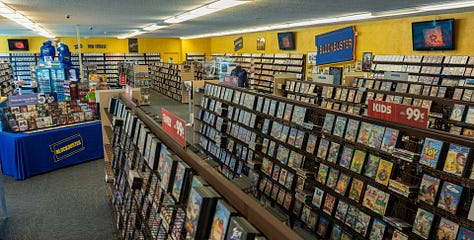
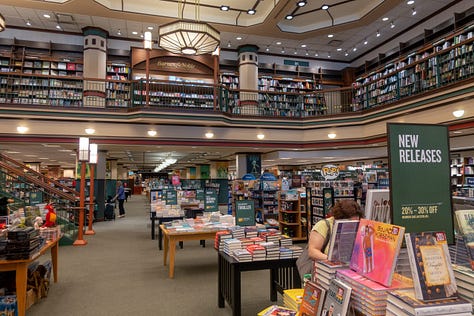
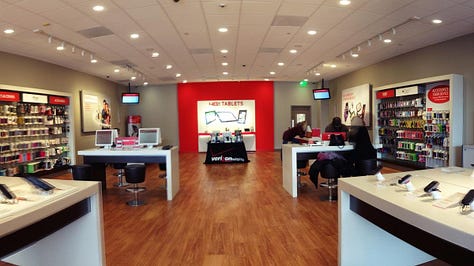
Sure, you've got options, but maybe only a few realistic ones, based on your price range and interests. But now with the internet and streaming and Amazon, the options are virtually unlimited. How do you decide? Well at least you have reviews right? So you can spend literally hundreds of hours researching different opinions and statistics and ratings, and never come to a conclusion.
The basic problem is that our brains are not prepared to deal with so many options. For most of human history, we were ruled by the Law of Scarcity. There was never enough food, and what we could get didn't last very long. Safety was never guaranteed, we were at the mercy of predators and the weather and the whims of neighboring tribes or dictators. We had very few options for what kind of work to do. You either hunt or you gather. If your father was a blacksmith, guess what? You're about to have sooty hands for the rest of your life. You want a mate? Choose from the three women in your tribe that are available, of the right age, and not related to you.
The rug pad of Optionality was a really great idea, and it worked amazingly for a while. As civilization progressed, we solved more and more of scarcity problems. We stopped dying all the time. We stopped being hungry all the time. We didn't just have to marry our neighbor.
The Law of Abundance
But sometime around the Industrial revolution, we reached a tipping point, and a switch was flipped, and now we are ruled by the Law of Abundance. And it's even more prevalent with the development of the computer and the internet, For those who live in developed countries, there is very little concern of danger- no risk of war, very low risk of crime, a competent system of police and medicine and justice. We go to the supermarket and there is fresh produce available out-of-season, year-round, every day; the shelves are stocked with an infinite variety of food choices, there are new products designed every day, products design to perfectly satisfy our craving for sweetness, crunchiness, zestiness, saltiness, etc. There is an unlimited amount of entertainment- music, movies, games, most of them free or very cheap, accessible on-demand, instantly. With online dating, there is a virtually unlimited pool of people to date, or with global marketing, there is always someone prettier, stronger, more charming. We just aren't meant to cope with so many options.
Our brains were cast in a mold that was designed to deal with this problem: How do I get more? But the world we live in presents a different problem: How do I take less?
We don't struggle to fill our bellies, but to avoid overfilling them. We don't struggle to protect our bodies from violence, but to actually use them to move around every once in a while. We don't struggle to find entertainment, but to stop ourselves from binging TV shows or video games or reddit or instagram or TikTok.
And so now the infection within the convenience has revealed itself. More options are good, up to a point. Then we have **too much of a good thing**. Then we have Analysis Paralysis. We get overwhelmed with options, flooded by them. We get stuck in the phase before we decide. There's no longer any single "best" option. Each one has its own tradeoff, its opportunity cost. And it doesn't stop there.
Even after we hesitantly and begrudgingly make a decision, after doing all the research, we are often plagued by Buyer's remorse- we spend all our time second-guessing ourselves, not enjoying our choice, but wondering if we made the right one. If our chosen path ever makes us the slightest bit uncomfortable, or doesn't go according to plan, we then get frustrated at ourselves that we should have picked the other path.
Or even if we are efficient with our decisions, and move through them relatively quickly, just executing before we get stuck, we realize that we are actually plagued by decisions throughout our days- so many choices- what to wear, what to eat, what to do for fun, who to do it with, when to do it. With texting we can simultaneously make multiple different plans, and then bail on all but the most attractive. And these incessant decisions all causes us a little bit of fatigue- they are a drain on our willpower reserve. In the end, we become so exhausted that we just don't have the energy to deliberate anymore, and so we start making bad decisions. We reach for the low hanging fruit. We eat junk food instead of cooking healthy meals, we watch TV instead of reading, we look at porn instead of pursuing intimate relationships, we stay up late, which makes us tired, and we make impulsive decisions, and the cycle continues.
Above: research from Johns Hopkins
Response
But these are societal problems. This is the world we live in. It's not changing anytime soon. So what can we do in response?
We see in all of these examples how too much freedom is actually limiting. We've seen how a really sweet deal has now become a rotten bargain. But its not all bad news; there's a light at the end of the tunnel. Where I'm going with all this is something really fascinating. What I want to look at in the next essay is how the inverse is also true- how limits are actually freeing.
But for now, let's talk about one practical way in which we can reduce the plague of Optionality in our own lives.
Because as I said earlier, a lot of this harm is caused by a misunderstanding and a misapplication of the concept of Optionality. Even though our modern world already contains many options for us, we often make matters worse by actively pursuing the development or maintenance of more options for ourselves.
To further flesh out the concept of Optionality, we need to make some subtle distinctions. It's not just that having more options is better, but only a certain type of options. We want the ones that have a convex risk-reward tradeoff. In other words, where the downside is very small, and the upside is very big.
For example, pursuing education (of any kind, not just through school), or trying to start a side hustle are two great examples of convex optionality. The downside is small- you either waste a little time or money (or both). But the upside is huge- education can provide new opportunities for yourself, make you a better and smarter person. Or if you side hustle turns into a profitable business, you could have significantly more income, and then more choices about what to do.
But other options, like having more artisanal jam to choose from, are not convex. The upside is limited- you might just like one of them a little bit more than the next. The same is true of the examples of entertainment or consumer products mentioned earlier. In these cases, is much better just to delineate a bunch of really restrictive criteria (things that really matter to you), and force yourself to choose from an artificially small pool.
In the restaurant example, decide what matters most to you- healthiness, price, proximity, flavor, novelty... whatever it is. Just pick one that is the most critical, and limit yourself to restaurants that maximize that value. In the movie example, don't just browse through what's available for free on the platform of your choice, but pick your favorite actor, director, writer, and see what they have that you haven't seen. And so on.
The best mindset to have is one of a Scientist- just trying an experiment. You have a hypothesis (a hunch- in this case your strongest criterion), and you’re going to see how far you can get with it. If you’re disappointed, that’s ok. You can always try again next time. Most decisions we make are not so irreversible and life-altering that we need to dwell on them so much (both before and after the decision).
Above: a consummate professional, just like you
And this mindset applies to Convex options too, and important life decisions, such as education, career, relationships. Keeping our options open creates a safety net, but doing this too much can cause them to become traps in themselves. Sometimes we just have to learn through trial and error. Commit to one, give it a fair shot, and see what happens. If you find something you really like, then pursue it. Options are only going to distract you and delay you from your dream.
That’s it for now. I hope I’ve convinced you that freedom can be limiting. In the next essay in the series, we’re going to look at some really cool implications of the reverse: how limits are freeing.






